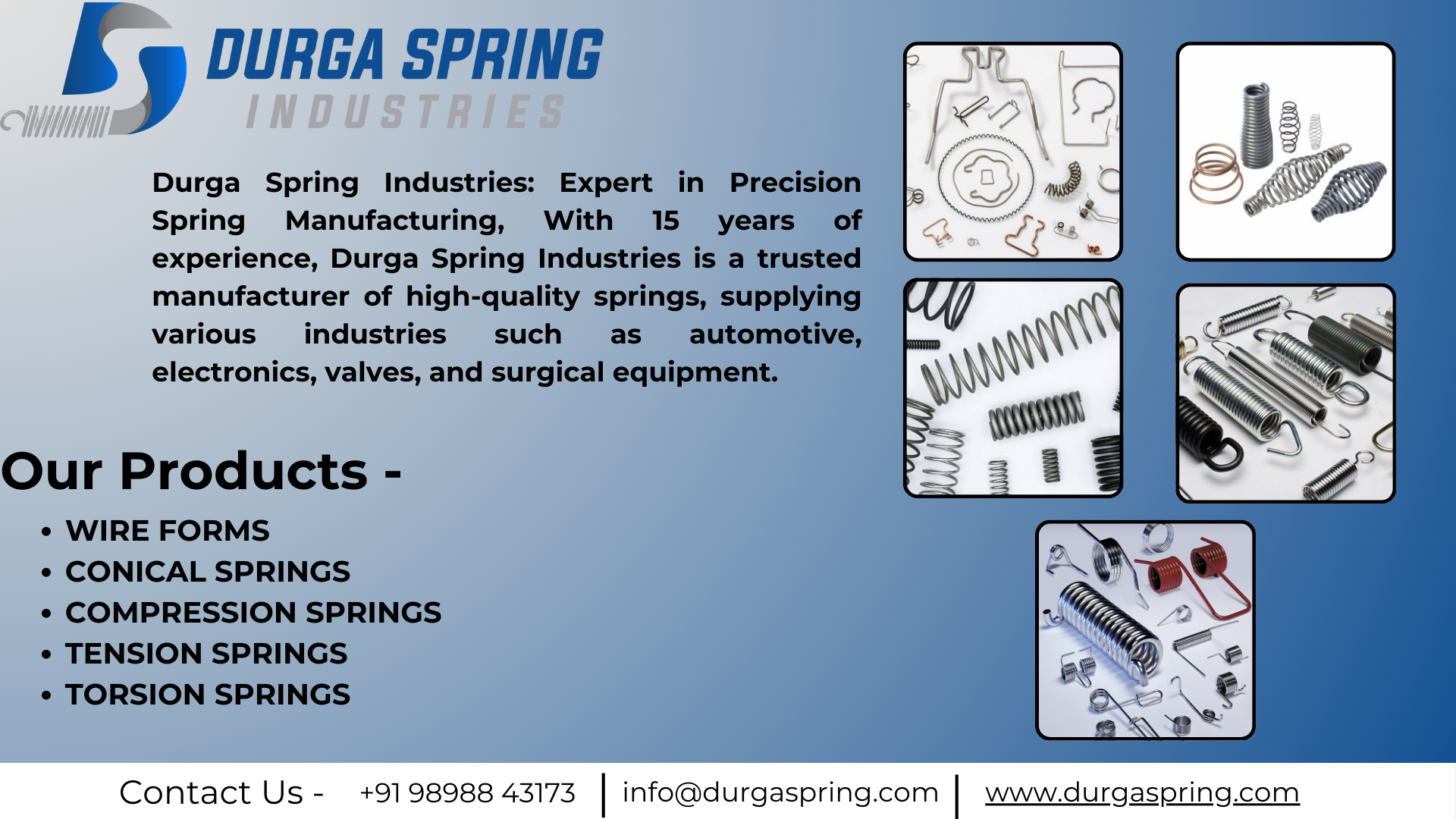Plot No-10 Star Gold Industrial Park ,Opp Garda Ghar,Village Kuha, Ahmedabad Gujarat (India)-382433
Address
Plot No-10 Star Gold Industrial Park ,Opp Garda Ghar,Village Kuha, Ahmedabad Gujarat (India)-382433
Plot No-10 Star Gold Industrial Park ,Opp Garda Ghar,Village Kuha, Ahmedabad Gujarat (India)-382433


Electrical
Wire Forms
Electrical Wire Forms are precisely shaped metal
wires used in electrical and electronic assemblies to create mechanical
supports, electrical contacts, terminals, grounding paths, or conductive routes
within devices or systems. Made from conductive metals like copper,
brass, stainless steel, and beryllium copper, these wire forms are custom-bent
into 2D or 3D geometries using CNC wire forming machines or manual processes.
These components are vital in industries such as automotive,telecommunications, consumer electronics, switchgear systems, lighting, andcontrol panels—offering durability, electrical conductivity, and shape
stability. Electrical wire forms can also include spring-type connectors,
clips, brackets, and contact arms, enabling them to serve
mechanical and electrical purposes simultaneously.
Key
Features & Their Uses
|
Feature |
Use / Benefit |
|
Custom 2D & 3D Shapes |
Tailored to fit specific electrical or mechanical assemblies. |
High Conductivity Metals |
Ensures efficient current flow in circuits or ground
paths. |
|
Springback & Flexibility |
Ideal for clips, terminals, and battery contacts. |
|
Corrosion-Resistant Finishes |
Enhances durability in harsh or outdoor environments. |
|
Precision CNC Wire Bending |
Guarantees consistency and tight tolerances for mass
production. |
|
Small to Large Wire Diameters |
Suits low-voltage electronics or heavy-duty industrial
components. |
|
Plating Options (Tin, Nickel, etc.) |
Improves electrical performance and prevents oxidation. |
|
Mechanical Strength |
Provides structural support in assemblies without welding. |
|
UL & RoHS Compliance (optional) |
Ensures safety and environmental compliance in global
markets. |
|
Fast Prototyping & Custom Tooling |
Enables quick development of application-specific wire
forms. |
Applications
of Electrical Wire Forms
Top 10
FAQs – Electrical Wire Forms
1. What materials are commonly used for electrical wire
forms?
Copper, brass, phosphor bronze, stainless steel, and beryllium copper are mostcommonly used.
2. What industries use wire forms?
Automotive, consumer electronics, switchgear, aerospace, telecom, and appliance
manufacturing.
3. Can wire forms carry electrical current?
Yes, many are designed to conduct current—especially when used as contacts,
terminals, or ground paths.
4. What size range is available for electrical wire
forms?
Typically from 0.3 mm to 8 mm wire diameter, but larger sizes are also
possible for heavy-duty applications.
5. Are wire forms available with insulation?
Yes, insulated or coated wire forms can be made, depending on the application
requirements.
6. How accurate are CNC-formed wire components?
Very precise, with tolerances typically within ±0.1 mm for consistent
fit and function.
7. Are these forms reusable or permanent?
Some are reusable (like spring contacts), while others are fixed components in
assemblies.
8. Can I request a custom wire form for my design?
Yes, manufacturers offer custom designs with prototyping, tooling, and
engineering support.
9. Do wire forms require surface treatment?
Yes, depending on the environment, they may be tin-plated, nickel-plated, or
passivated.
10. What is the lead time for production?
Typically 2 to 4 weeks for custom wire forms, depending on complexity
and quantity.
Contact
Us For More Details On :
Call - +91 98988 43173
Email - info@durgaspring.com
Website –
www. durgaspring.com
YouTube -
www.youtube.com/@durgasprings
Facebook
- www.facebook.com/people/Durga-spring-industries
Filter Using Product Tags